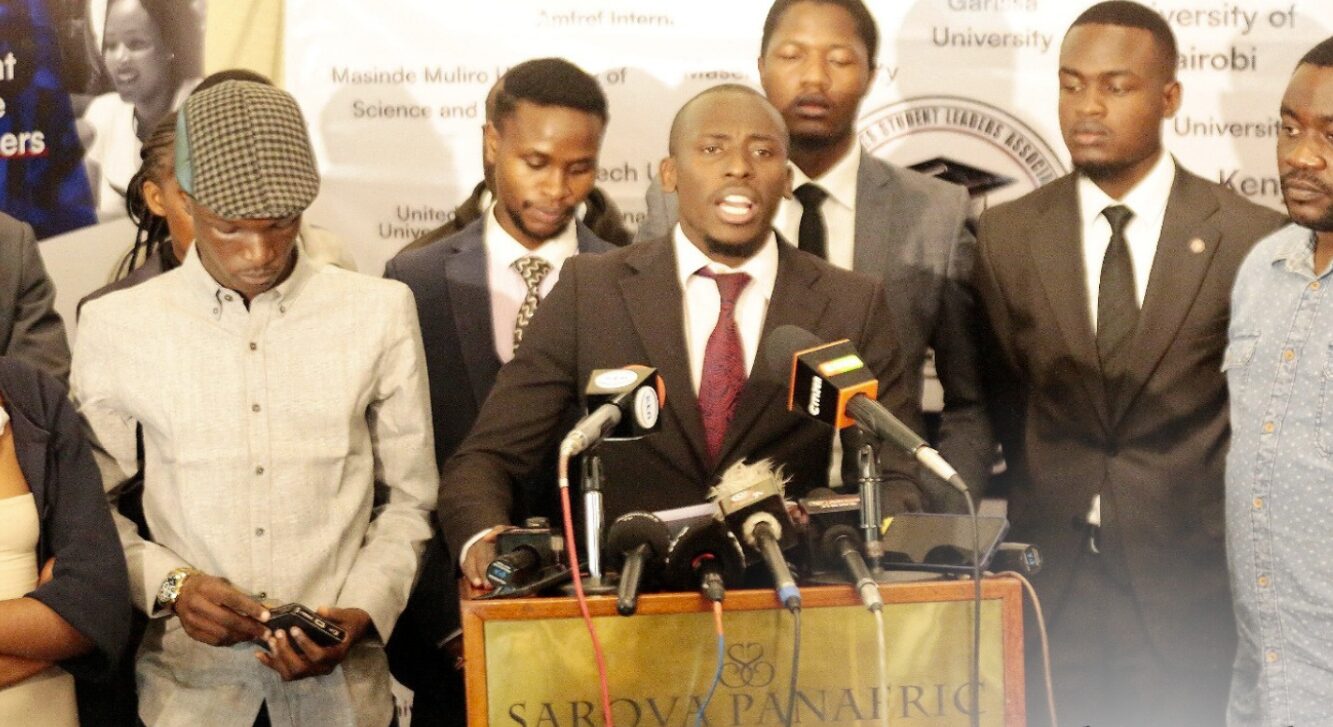A coalition of student leaders under the Universities Student Leaders Association (USLA) has raised the alarm over what they describe as a deepening crisis in the disbursement of higher education loans and scholarships across the country.
In a press briefing held on Wednesday at Sarova Panafric Hotel, Nairobi, the student leaders, led by USLA Secretary General Carel Omwoyo, called on the Ministry of Education to urgently convene a national dialogue to address what they say is a complete breakdown in the management of student financing.
“This is not just about delays it is a breakdown in the very architecture meant to support access to higher education for deserving students from vulnerable backgrounds,” said Omwoyo.

He stressed that the government must take immediate action by bringing together all relevant stakeholders, students, education officials, and loan administrators, to address growing student frustration with the HELB and Universities Fund processes.
The event was also attended by Mark Ouko of the National Students Council of Kenya, Alice Mulinge of Africa Nazarene University, and Albert Maloba, USLA Executive Director.
The leaders warned that the ongoing confusion surrounding government loan applications has put tens of thousands of students, especially first years, at risk of missing the academic year.
Recent reporting indicates that more than 194,000 students admitted to various universities in 2025 are still unsure if their HELB and Universities Fund applications have been approved.
Institutions such as the University of Nairobi and Maseno University are preparing to open their doors within weeks, yet no communication has been issued on the funding status.
Students were previously instructed to apply for loans and scholarships through the revamped Higher Education Financing (HEF) model, introduced in 2023.
Under this model, funding is no longer automatically tied to placement by the Kenya Universities and Colleges Central Placement Service (KUCCPS), creating a funding vacuum for new admissions.
Students report facing recurring errors in the application system, such as invalid ID messages or records not being found, with no clear helpline or resolution mechanism.
“The very students who were told this system would be inclusive are the ones falling through the cracks,” said Omwoyo.
Compounding the issue is the categorisation of students into funding bands. USLA claims that many applicants from low-income backgrounds have been placed into higher bands, mistakenly or arbitrarily, resulting in them receiving minimal or no support.
One affected student, Felix Omondi, was admitted to study Pharmacy at JKUAT but could not enroll after being assigned to Band 5.
Despite a successful appeal that moved him to Band 4, the financial burden remained overwhelming.
“This is a system that’s not just inefficient, it is unjust,” said another USLA official, warning that without intervention, thousands of students will be shut out of the education system altogether.
In response to questions in Parliament last week, Treasury Cabinet Secretary John Mbadi acknowledged the fragility of the current funding model and maintained the need for better loan recovery mechanisms to sustain the scheme.
However, students and their representatives say words are not enough.
They demand swift, structured, and transparent reforms that guarantee every qualified Kenyan student the right to access education without bureaucratic roadblocks.
Kenyan Business Feed is the top Kenyan Business Blog. We share news from Kenya and across the region. To contact us with any alert, please email us to [email protected]













